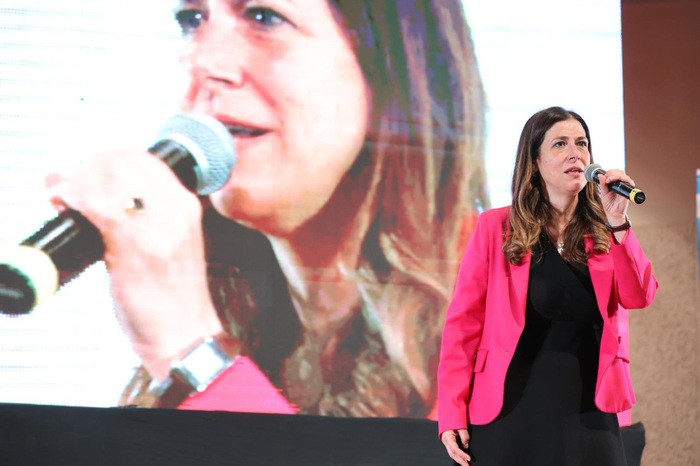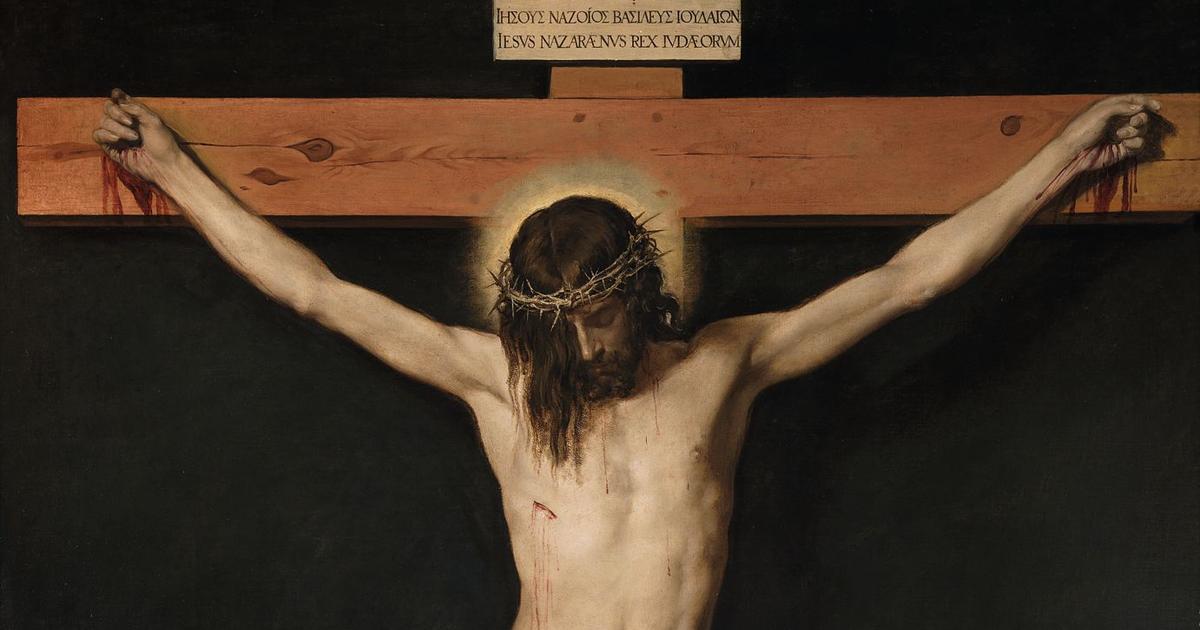Merz is (almost) there
It's hard to believe:
Armin Laschet is still chairman of the CDU.
And he will formally remain so when the party conference on Saturday understands the results of the member survey and appoints
Friedrich Merz as his successor
.
For legal reasons, the delegates first have to confirm their vote at the virtual meeting in writing, so that the new boss will only be officially in office after the postal vote has been counted on January 31st.
De facto, however, Merz is already swinging the scepter in the CDU, and
at the online party conference, at the tender age of 66, he wants to herald the restart of the party, in terms of content and personnel
.
In addition to the chief post, the presidium and board of directors will also be completely re-staffed.
Mario Czaja is to succeed Paul Ziemiak as general secretary, of the previous deputy chairmen only Silvia Breher will probably keep her job.
For the extended board, 40 applicants are jostling for 26 places.
The future chairman would like the party leadership to be
younger and more female
.
In the end, what matters most is whether Merz can quickly get the Christian Democrats back on their feet and form them into a powerful opposition. "First there was the shock phase, now we're in the adjustment phase," says Merz himself. He hopes "that after the party congress, the awakening phase will follow relatively quickly."
To do this, he has to do what Armin Laschet and Annegret Kramp-Karrenbauer failed to do:
unite the party behind them
. In order to finally conquer the presidency at the third attempt, Merz made every effort in the party's internal election campaign to shed the
image of a conservative bone
that had long frightened the liberals in their own ranks. Well, my colleague Florian Gathmann analyses, Merz, as party leader, has to prove "that he can do both: not disappoint his fans from the conservative wing, who have remained loyal to him over the years - and at the same time address those from the other wing, who evidently chose him as well."
Merz does not have time for a pronounced group therapy: The question of who will lead the Union faction in the Bundestag in the future must be clarified quickly,
there is a risk of a power struggle
between Merz and incumbent Ralph Brinkhaus, who is initially elected until April 30th.
And in March and May there are
three state elections
: In Saarland, Schleswig-Holstein and North Rhine-Westphalia, the CDU has to defend the state chancellery – that will be easier once the Union has regained its footing at federal level.
Future CDU boss: The four construction sites of Friedrich Merz
If you talk, don't shoot
"How far does Putin go?" We ask this week on the
cover of the new issue of SPIEGEL
. Admittedly, giving a reliable answer to this is almost impossible. After all, only Russia's president knows whether he is really planning, or at least considering, an invasion of Ukraine. Or whether
the greatest military threat since the end of the Cold War
, which he has been building for weeks on the border, is only intended to extort "security guarantees" from the West.
The US and Russian foreign ministers spoke to each other in Geneva on Friday – shorter than planned.
Initially, no concrete results were obtained.
It is said that there was no negotiation, only an exchange of views.
As if they weren't already known.
After all, both sides want to keep talking.
And if you talk to each other, you don't shoot at each other.
The danger of an escalation, of a war, nevertheless remains very real.
My colleague Christina lever in Moscow and my colleague Roland Nelles in Washington analyze how things could go on:
US-Russia Foreign Ministers Meeting: Beyond Speeches
The new SPIEGEL dedicates itself in detail to the dramatic situation in Eastern Europe.
A team from the capital office traces
how difficult it is for the traffic-light government to find a resolute and coherent course in dealings with Russia
- be it on possible arms deliveries to Ukraine, financial sanctions against Russia or the question of whether Putin's prestige project, the Baltic Sea pipeline Nord Stream 2, could still be buried:
Russia diplomacy among NATO partners: Putin ignites – and Scholz has no time for Biden
Colleagues from the economics department analyze
which sanctions the West could use to hurt Russia
– and which ones would damage its own economy:
Crisis in Eastern Europe: What sanctions are deterring Russia?
In a SPIEGEL interview, the three Russia experts Nina Khrushcheva, Sabine Fischer and Masha Gessen try to explain
what drives Vladimir Putin in the conflict
:
Kremlin experts on Ukraine conflict: "One wrong step and Russia will be buried"
The foreign department also explored
the Ukrainian army's defense capabilities
.
How long could they actually hold off a Russian invasion?
Danger of war in Ukraine: "It won't be a march through for Moscow"
And my colleague Lina Verschwele was in Kharkiv, the second largest city in Ukraine.
She describes how people here, near the Russian border,
live with the fear of an attack
:
Three Ukrainian women on the danger of war: "I don't even want to imagine leaving Kharkiv"
The Corona Paradox
The number of infections is rising and rising, and the authorities in Germany are registering new highs in new infections every day.
Health Minister Karl Lauterbach does not expect the omicron wave to
peak
until mid-February, by which time there could soon be several hundred thousand new corona cases every day.
Because of this dynamic, the test laboratories have long since reached their capacity limits.
Lauterbach therefore wants to discuss his plans for a new test regulation
with the health ministers of the federal states this Saturday
: PCR tests from employees in hospitals, nursing homes and facilities for the disabled are to be analyzed with priority in the future.
On Monday, the prime ministers will meet again with Chancellor Olaf Scholz for the
Corona summit
.
Because the wave continues to build up, but at the same time there is no collapse of the hospitals in sight, a tightening of the corona rules is not to be expected for the time being.
Bavaria's Prime Minister Markus Söder is even bringing the first easing - for example for cultural events - into play.
Corona paradox?
Are these
the first harbingers of a change in strategy in crisis policy
, as Söder recently announced?
Are we entering a
new phase of the pandemic
because omicron is more contagious, but a disease is usually milder?
There will not be a turnaround on Monday like in other countries, which are lifting measures despite the continued enormous number of infections. But, as a SPIEGEL team registered during its research last week,
politicians are thinking more and more specifically about possible exit strategies
. Also because it is becoming increasingly clear that the virus cannot be caught, that infections can no longer be prevented, but can be slowed down as much as possible. Side effect:
Doubts about a general obligation to vaccinate
, which suddenly found so many supporters, are growing again.
A few days ago I wrote here that I personally no longer feel the drama of the corona situation - despite the number of new infection records.
In the meantime, however, I'm starting to ponder again:
do we think we're on the way to endemics too soon?
Are we becoming too careless and marching into the next wave, no matter how many, believing that everything will soon be over?
Vaccination-free, unprepared, again?
It's just a feeling.
A bad thing.
The federal government's pandemic policy: when will we get out of here - and how?
Cancellations of the week...
… come from Angela Merkel.
Three of them have been handed down this week, after no one had heard from her for a while since she left a few weeks ago. First it became known that she had been turned down by UN Secretary-General António Guterres, who had offered her a
job at the United Nations
. In view of the job description, the rejection was more than understandable: adviser on a committee dealing with public goods. Oh well.
Also understandable: the former chancellor refrains from becoming honorary chairman of the CDU. Probably not just because Merkel is far too unpretentious for such pseudo offices. The only honorary chairman of the Christian Democrats so far was Helmut Kohl, and he returned this title in the donation scandal after the then General Secretary Angela Merkel had called on her party to finally break away from Kohl. And now Merkel of all people is supposed to be the next
honorary
chairwoman? No thank you.
And then
Friedrich Merz
tried
it too
.
According to SPIEGEL information, the designated new CDU leader wanted to dine with all of his predecessors who were still alive this Saturday evening, after his election at the party conference.
Armin Laschet and Wolfgang Schäuble agreed, Annegret Kramp-Karrenbauer and Angela Merkel gave Merz a basket.
The former chancellor cited “reasons related to the deadline”.
That's a bit poor.
The latest news from the night
NATO holds major military exercises in the Mediterranean:
NATO anticipates Russia's planned naval maneuvers and leaves a US aircraft carrier in European waters – for "calming down".
Meanwhile, there seems to be a dispute over missile deliveries to Ukraine
Qatar Airways publishes video of damage to A350 jets in dispute with Airbus:
The airline reacted to Airbus' cancellation of an order worth billions - and took the dispute with the aircraft manufacturer to social media: A video of damaged aircraft can now be seen on YouTube
According to the FBI, Gabby Petito's friend confessed to her killing:
The case of Gabby Petito, who disappeared in the USA, had caused a worldwide sensation.
Diary entries of her then boyfriend Brian L. provide information about the circumstances of death
The SPIEGEL + recommendations for today
Youth in the Pandemic:
»We are observing an increase in endangering oneself and others«
Corona vaccinations:
Why one man alone collects better data than the WHO
Defective new buildings: boom of bunglers
Danger of war in Ukraine: "It won't be a march through for Moscow"
Star formation and young galaxies: How German researchers go on the hunt for baby planets
I wish you a wonderful weekend.
Heartfelt,
Yours Philip Wittrock







